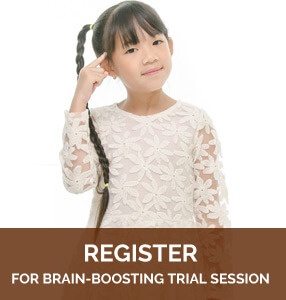Why can’t my child see the difference? Why is he constantly so careless in his work and missing out on important details? Why does he make careless mistakes in his assignments? In modern day terms, most parents would assume that their child is careless.
More often than not, we focus on the aftermath, which is the red markings on the papers and schoolwork.
What are the reasons? Are our children simply careless, or is there more underlying reasons?
Even with a 20/20 eyesight, we might not necessarily have adequate visual skills to facilitate in learning and focusing. Learning is a skill that encompasses several skills, of which visual processing makes up an important component.
While a healthy eyesight is a physical aspect that many are born with, the development of our visual processing skills is critical. Weaker visual processing skills, very often hinder our speed and ability to read, as well as our level of understanding.
Take for the simplest of action:
Sitting at your desk and copying the notes on the blackboard. The act of looking at the board (far) and copying it onto your notebook (near).
This requires the child to maintain their field of vision without losing sight of the word or sentence that they are tracking.
In the process, visual perception comes into play. The child will need to interpret and make sense of what they see, before translating it into notes in their own writing. Missing the words, or skipping lines does not simply indicate a careless child.

A child with weak visual processing skills would struggle to follow the sentence. In the midst of copying, he may miss out important aspects of the text. Other symptoms of visual processing difficulty may show in the form of fatigue and headaches, or perhaps difficulty in reading and writing, especially when there is small print.
This fatigue or difficulty can lead to a child who may feel little motivation in learning. More often than not, this ‘careless child’ would often be labelled lazy or unmotivated.
What To Look Out For?
Here’s a checklist that parents can use, to see if weaker visual processing skills are affecting their children:
http://www.eyecanlearn.com/eyeslearn/symptoms/
Visual Processing skills encompasses a wide range of skills from visual discrimination, visual sequencing, visual memory and so on. Sometimes the child may demonstrate weakness in a certain area instead of the entire skill set.
Improving with Training:
It is important to highlight that with adequate training, these skills can be improved. There is no foolproof way to turn a careless child into an academic overnight, as it takes practice and patience.
Likewise, a person who may already be good in visual processing can also train to make further progress. Vision exercises are beneficial as children can do a variety of activities from tracking, focusing, to making a more accurate judgement.
Take our Initial Brain Test to find out your child’s learning profile to see how they perform in visual processing as well as other skill sets that facilitates in learning.
Helping a ‘careless’ child cope:
- Notes should be clearly written and carefully. More time might be taken and using a ruler will help.
- Colour coding instructions or using a highlighter to pick out important information.
- Use of electronic devices to facilitate in learning.

To make the training process fun, here are some games that can be integrated.
- Jigsaw puzzles. They are a wonderful way to train vision, with the various shapes and colours. It will also make your child focus on details.
- Ball games are an excellent way of practicising estimation and gauge. A game of throw and catch would help the child learn to track the ball as it goes midway through the air. This improves tracking as well as their judgement.
- Spot the difference games and hunting/find items game such as “Where’s Waldo?” <Refer to Spot the Difference – Visual Discrimination>









